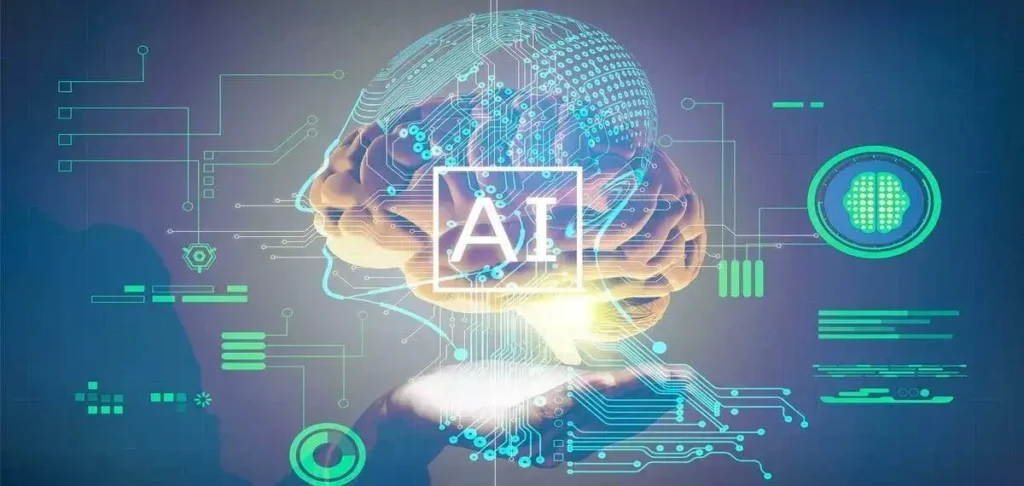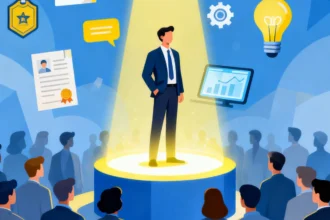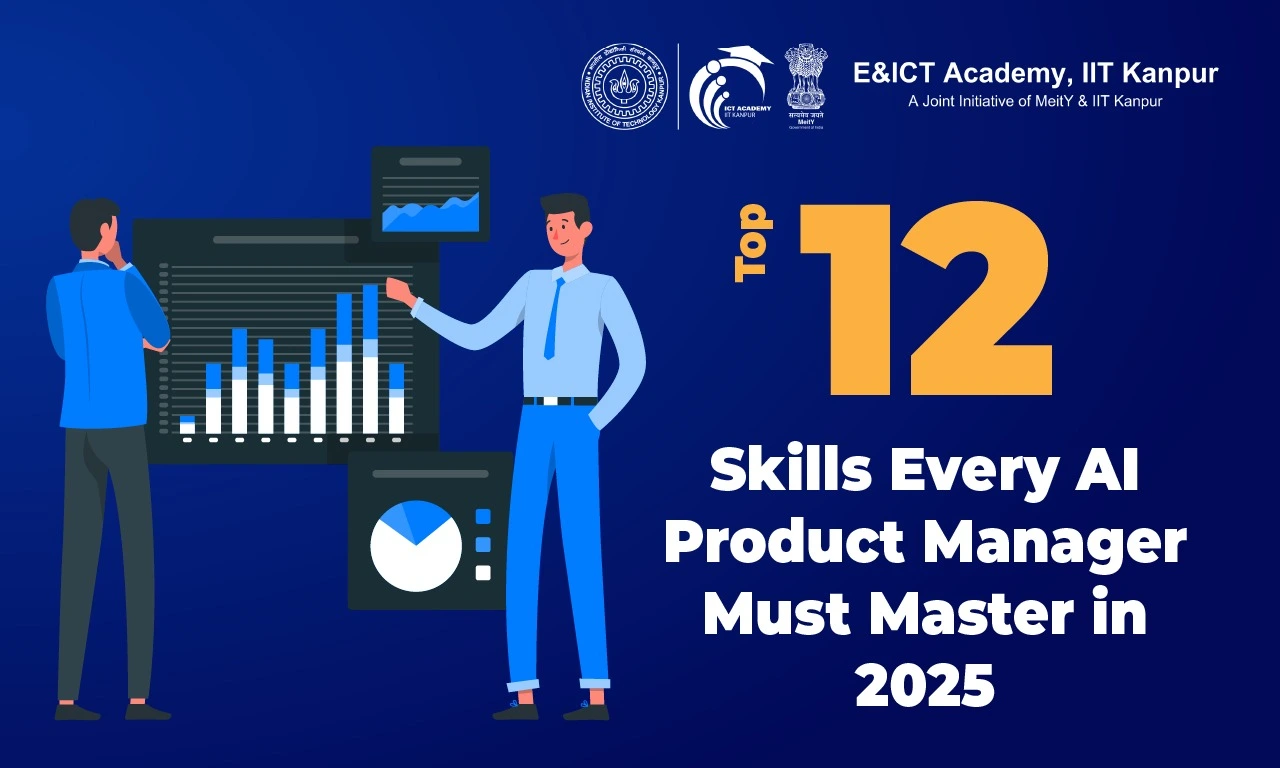Estimated Reading Time: 25-28 minutes (4,851 words)
Introduction
Artificial Intelligence (AI) is no longer a futuristic buzzword — it’s the backbone of how modern businesses, governments, and startups operate. From AI-powered recommendation engines on Netflix to ChatGPT-driven tools reshaping content creation and coding, every industry is undergoing transformation. In India, this shift is even more visible: companies from Infosys to Zomato and fintech startups like Razorpay are actively hiring AI engineers, data scientists, and prompt designers. The World Economic Forum predicts that by 2025, AI and data-related roles will be among the top five most in-demand job categories globally, and India — with its massive youth population — is set to become the world’s AI talent powerhouse.
However, most Indian students still struggle to figure out where to begin. Should you focus on Python, machine learning, or prompt engineering? Is data science still relevant when ChatGPT can do so much? The truth is: AI isn’t about mastering one coding language — it’s about combining technical, analytical, and creative skills to solve real-world problems. Employers now value students who can not only train models but also deploy them, evaluate their fairness, and integrate them into products. This means your learning strategy in 2025 needs to balance core AI fundamentals with new-age specializations like MLOps, LLMOps, and generative AI.
This blog breaks down the 12 most valuable AI skills every Indian student should learn in 2025 — and exactly how to build them fast, even if you’re starting from zero. We’ll cover structured learning paths, project ideas you can showcase on your resume, and free/affordable resources from platforms like Google AI, NPTEL, Coursera, and Kaggle. Whether you’re a college student, a job seeker, or an aspiring entrepreneur, these skills will help you stay future-ready and competitive in India’s rapidly evolving AI job market.

Why AI Skills Matter in 2025
🌍 Global Perspective: The AI-First Economy
- The world is rapidly moving toward an AI-first job market, where automation, analytics, and intelligent systems drive business growth.
- According to the World Economic Forum (Future of Jobs Report 2025):
- AI, Big Data, and Cloud Computing are among the top 5 fastest-growing skills globally.
- Nearly 75% of companies plan to adopt AI tools, generative models, or data analytics platforms by 2025.
- AI, Big Data, and Cloud Computing are among the top 5 fastest-growing skills globally.
- AI is no longer confined to tech companies — industries such as healthcare, finance, education, agriculture, logistics, and entertainment are all integrating AI into daily workflows.
- Students worldwide who build these capabilities now will enter a market that values AI literacy as highly as traditional engineering or management skills.
🇮🇳 India’s Unique Advantage
- India is becoming one of the world’s fastest-growing AI talent hubs.
- As per India Employer Forum and NASSCOM:
- Demand for AI, Big Data, and ML specialists in India is expected to grow by 60%+ between 2024–2027.
- 63 out of every 100 Indian workers will require AI-related upskilling by 2030 just to stay employable (World Economic Forum).
- Demand for AI, Big Data, and ML specialists in India is expected to grow by 60%+ between 2024–2027.
- Indian enterprises — from Infosys, TCS, and HCL to Zomato, Paytm, and Razorpay — are heavily investing in AI systems for automation, personalization, and predictive decision-making.
- By 2030, India’s AI economy could contribute $500–600 billion to GDP, driven by AI-led innovation and productivity gains (NITI Aayog).
- This makes AI education and early adoption a strategic advantage for students — not just a technical hobby.
🎯 What This Means for Indian Students
- Companies no longer hire only for “coding skills” — they need professionals who understand AI workflows, data pipelines, deployment, and domain context.
- The most employable candidates will master:
- AI frameworks (e.g., TensorFlow, PyTorch)
- Data engineering tools (e.g., SQL, Spark)
- Cloud platforms (AWS, GCP, Azure)
- MLOps and LLMOps pipelines (deployment, monitoring, scaling models)
- AI frameworks (e.g., TensorFlow, PyTorch)
- Learning these now = faster hiring, better job roles, and higher salary premiums.
- A PwC global analysis found that workers with AI proficiency earn up to 56% higher wages than peers without it — clear evidence that AI skills are a direct income multiplier.
- Students who act early will not only stay ahead of automation but also create opportunities — from building startups to leading AI-driven research projects.
⚡ Quick Fact
“Technological skills — especially AI and Big Data — are the fastest-growing required skills worldwide over the next five years.”
— World Economic Forum, Future of Jobs Report 2025
Key Stats & Market Outlook (2025–2035)
This section turns your table into a data-driven narrative + structured bullet format, making it perfect for both SEO readability and infographic use later.
It includes key metrics, implications for Indian students, and a future outlook, backed by credible global and Indian sources.
📊 Key Global & Indian AI Market Statistics
| Metric / Trend | Value / Source | Why It Matters for Students |
| 170 million new jobs globally by 2030 | World Economic Forum, Future of Jobs Report (2025) | AI, automation, and data-driven transformation will create massive employment shifts — especially in technology, analytics, and hybrid “AI + domain” roles. Students entering the workforce now can ride this job creation wave. |
| 39% of core skills will change by 2030 | World Economic Forum & India Employer Forum | Nearly 4 in 10 of today’s professional skills will become outdated — meaning continuous learning and adaptation will be mandatory. Students must plan for lifelong upskilling. |
| India’s AI and Big Data specialist demand growth > 60% (2024–2027) | India Employer Forum, NASSCOM, Deloitte Insights | India is seeing one of the world’s fastest growth rates in AI hiring, led by IT, fintech, manufacturing, and e-commerce sectors. Entry-level roles are evolving into AI-integrated positions. |
| Workers with AI skills earn ~56% more | PwC “AI Jobs Barometer”, 2024 | AI proficiency translates to direct income ROI. Globally, professionals with AI expertise earn up to 56% higher salaries than peers without these skills — and the premium is similar in India’s metro cities. |
| $500–600 billion potential GDP boost for India by 2035 | NITI Aayog & McKinsey India Reports | AI adoption could contribute 10–15% of incremental GDP by 2035. That means government, academia, and industry are investing heavily in AI infrastructure — increasing demand for skilled graduates. |
🔮 AI Market Outlook: 2025–2035
2025–2030: The Acceleration Phase
- Rapid hiring for AI/ML Engineers, Data Engineers, LLM Developers, and MLOps Specialists.
- Companies prioritize automation, model deployment, and AI integration into existing products.
- EdTech and corporate learning platforms (like NPTEL, AWS Academy, and Google AI India) will expand certification programs.
- Expect more college–industry partnerships for AI internships and research fellowships.
- Hybrid roles (e.g., AI Marketing Analyst, AI-driven Designer, AI in Finance) begin to dominate entry-level markets.
2030–2035: The Specialization & Maturity Phase
- Rise of domain-specific AI roles:
- AI in Healthcare → diagnostics, patient analytics
- AI in Fintech → fraud detection, risk models
- AI in EdTech → adaptive learning and tutoring
- AI in Automotive/EV → autonomous driving systems
- AI in Healthcare → diagnostics, patient analytics
- Growth in cloud-AI infrastructure jobs — focusing on scalable systems and AI model lifecycle management.
- Creation of AI Ethics, Governance, and Regulation roles as governments tighten policies.
- Emergence of Human–AI collaboration jobs, where professionals oversee, train, or refine AI systems.
🇮🇳 Why This Is the Moment for Indian Students
- India is entering the “value-creation phase” of its AI ecosystem — where adoption shifts from experimentation to implementation.
- This means huge demand for practical skills — not just theory. Employers need graduates who can:
- Build AI models, deploy them on the cloud,
- Integrate them with APIs and apps,
- Understand their ethical, business, and domain implications.
- Build AI models, deploy them on the cloud,
- Students who start building hands-on experience in 2025 — through internships, Kaggle projects, and cloud certifications — will be in the top hiring percentile by 2028–2030.
- With government and corporate initiatives such as “IndiaAI Mission,” “Digital India,” and “AI for All”, this decade is India’s AI talent decade.
💡 Key Takeaway Box
India is at the inflection point of AI adoption — between experimentation and large-scale execution.
Students who invest early in AI, ML, and data skills between 2025–2027 will be the most sought-after professionals by 2030.
The Top 12 AI Skills Every Indian Student Should Master
Below are 12 essential AI skills that matter most in 2025 — each with:
✅ What it is
✅ Why it matters in the Indian/global job market
✅ How to build it fast (with actionable 2–4 week plans)
✅ Plus real-world project ideas, tool recommendations, and portfolio tips
Skill 1: Python & Programming Fundamentals
What it is:
Mastering Python — the most popular programming language for AI — along with programming logic, version control (Git/GitHub), and data manipulation.
Why it matters:
Almost all AI and machine learning frameworks (TensorFlow, PyTorch, Scikit-learn) rely on Python. Employers in India expect coding fluency, clean code, and familiarity with collaboration tools.
How to build it fast (4-week plan):
- Week 1–2: Learn Python syntax, data types, loops, functions, and file handling through free platforms like Codecademy, Kaggle Learn, or Google Python Class.
- Week 3–4: Learn Git & GitHub basics — clone, commit, push, branch, and pull requests.
Create your first repository called “My AI Repo.” - Mini Project: Build a Sentiment Analyzer using NLTK/TextBlob. Test it on Indian Twitter data and publish it on GitHub.
Pro Tip 💡:
Keep your code well-commented and use a consistent naming convention — recruiters often check your GitHub for code readability.
Skill 2: Data Structures, Algorithms & Mathematics for ML
What it is:
Understanding arrays, trees, graphs, sorting/search algorithms, and core mathematical foundations — linear algebra, calculus, and optimization.
Why it matters:
Machine learning is built on mathematics and efficient algorithms. These fundamentals are crucial for debugging models, optimizing performance, and cracking interviews (especially for FAANG or Indian unicorns).
How to build it fast:
- Spend 2–3 weeks learning algorithms on GeeksforGeeks or LeetCode (Easy–Medium).
- Parallelly, revise linear algebra & calculus via Khan Academy or MIT OpenCourseWare.
- Project Idea: Implement K-Nearest Neighbors from scratch using only Python (no ML libraries). Visualize results using Matplotlib.
Portfolio Tip:
Add a “from-scratch” ML notebook on GitHub titled “Rebuilding ML Algorithms” — it showcases your depth.
Skill 3: Statistics & Probability
What it is:
Core statistical concepts — mean, variance, distributions, hypothesis testing, Bayesian reasoning, and sampling.
Why it matters:
AI and ML are essentially advanced statistics. Recruiters test this knowledge in interviews, and analysts rely on it to interpret model outputs and validate results.
How to build it fast:
- Week 1: Learn descriptive stats (mean, median, variance, correlation).
- Week 2: Learn probability theory, conditional probability, and Bayes’ theorem.
- Mini Project: Perform Exploratory Data Analysis (EDA) on a Kaggle dataset like “Titanic” or “IPL Players.” Include visualizations and confidence intervals.
Pro Tip:
Always interpret your findings in plain English — it demonstrates business clarity.
Skill 4: Machine Learning Fundamentals
What it is:
Supervised vs unsupervised learning, regression, classification, clustering, and model evaluation techniques.
Why it matters:
Machine Learning (ML) is the foundation of all AI careers. Without it, you’re just a data cleaner — not an AI professional.
How to build it fast:
- Take Andrew Ng’s ML Course or Google’s ML Crash Course (3–4 weeks).
- Project: Build a spam detection classifier using Scikit-learn.
- Train → Test → Evaluate → Visualize confusion matrix.
- Write a README explaining your model logic.
- Train → Test → Evaluate → Visualize confusion matrix.
Portfolio Tip:
Add one well-documented project per ML topic — helps showcase your progression.
Skill 5: Deep Learning & Neural Networks
What it is:
Modern AI: Convolutional Neural Networks (CNNs), Recurrent Neural Networks (RNNs), Transformers, and Generative Adversarial Networks (GANs).
Why it matters:
Deep Learning powers everything from ChatGPT to self-driving cars. Indian startups in edtech, fintech, and healthcare are actively hiring DL engineers.
How to build it fast:
- Use fast.ai or DeepLearning.AI Specialization for structured learning.
- Hands-on Projects:
- Build an image classifier (MNIST/CIFAR-10) using TensorFlow or PyTorch.
- Try a text sentiment classifier using a Transformer model.
- Build an image classifier (MNIST/CIFAR-10) using TensorFlow or PyTorch.
- Publish your loss curves, accuracy graphs, and findings on GitHub.
Pro Tip:
Write a short Medium blog summarizing your results — shows communication skills and technical clarity.
Skill 6: Data Engineering & Cloud Platforms
What it is:
Building and maintaining data pipelines (ETL), using cloud tools like AWS, GCP, or Azure, and managing data warehouses (BigQuery, Snowflake).
Why it matters:
AI needs data — clean, reliable, and scalable. Companies now prefer “AI engineers” who can deploy models in real data environments.
How to build it fast:
- Pick one cloud provider (AWS or GCP).
- Learn: cloud storage (S3), compute (EC2), and data pipelines (Airflow/BigQuery).
- Project: Build a simple cloud-hosted dashboard that visualizes ML results in real-time.
Pro Tip:
Document cost & latency trade-offs in your project. Recruiters love practical awareness.
Skill 7: MLOps / Model Deployment & Monitoring
What it is:
The DevOps of ML — managing deployment, CI/CD pipelines, versioning, and performance tracking for AI models.
Why it matters:
AI models aren’t useful until deployed. MLOps engineers are among the top 3 most in-demand AI roles in India (NASSCOM 2025).
How to build it fast:
- Learn Docker + Kubernetes basics (Week 1).
- Project:
- Deploy your model from Skill 5 in a Docker container.
- Build an API endpoint using FastAPI or Flask.
- Host on Render, AWS Lambda, or Google Cloud Run.
- Deploy your model from Skill 5 in a Docker container.
- Add monitoring logs and version control.
Quick Fact:
MLOps skills are ranked among the highest-priority enterprise AI capabilities (Gartner, 2024).
Skill 8: Large Language Models (LLMs) & Prompt Engineering
What it is:
Working with GPT-style models, fine-tuning, RAG (Retrieval-Augmented Generation), and cost optimization.
Why it matters:
The AI wave of 2023–2025 is LLM-driven. Roles like “Prompt Engineer” and “AI App Developer” are booming globally — including India.
How to build it fast:
- Week 1: Learn OpenAI API or HuggingFace Transformers.
- Week 2: Build a Chatbot or Q&A app using vector stores (FAISS or Pinecone).
- Publish: include prompt templates, architecture diagram, and demo link on GitHub.
Pro Tip:
Showcase efficiency: “How I reduced GPT cost by 40% using better prompts.” That’s the kind of insight employers value.
Skill 9: Domain-Specific AI (Fintech, Healthcare, EdTech)
What it is:
Applying AI to solve sector-specific problems — e.g., fraud detection (fintech), diagnostics (healthcare), adaptive tutoring (edtech).
Why it matters:
Indian firms prioritize domain expertise. Knowing your vertical means you can build AI that’s not just functional, but useful.
How to build it fast:
- Pick one domain you’re passionate about.
- Read 2–3 case studies on AI use in that field.
- Project Example:
- Fintech → Fraud detection using transaction data.
- Healthcare → X-ray image classification.
- EdTech → Personalized quiz engine.
- Fintech → Fraud detection using transaction data.
- Document and present your model pipeline visually.
Case Study Insight:
Fintech firms in India reduced fraud costs by 35% through predictive ML systems (PwC India, 2024).

Skill 10: AI Ethics, Governance & Security
What it is:
Understanding fairness, bias, data privacy, interpretability, and compliance (India’s Data Protection Bill, GDPR).
Why it matters:
AI is powerful — but risky. Ethical lapses can halt projects or attract penalties. Firms increasingly hire AI auditors and ethics leads.
How to build it fast:
- Study bias, fairness, and explainability (via Google AI Ethics course).
- Project: Audit your ML model for demographic bias or drift.
- Write a reflection blog: “How I Found Bias in My Model — and Fixed It.”
Warning ⚠️:
AI ethics isn’t optional anymore — it’s a career multiplier in 2025.
Skill 11: Soft Skills — Communication, Problem-Solving & Business Sense
What it is:
Explaining technical concepts clearly, aligning models with business goals, and collaborating effectively.
Why it matters:
AI engineers often work with marketing, finance, and product teams. Employers value communicators, not just coders.
How to build it fast:
- Practice explaining your AI project to a non-technical friend.
- Join Toastmasters or write LinkedIn posts summarizing projects.
- Engage in problem-framing exercises: “How could AI reduce churn in an edtech app?”
Insight:
The WEF lists analytical thinking, curiosity, and adaptability as top 3 rising skills (Future of Jobs Report 2025).
Skill 12: Portfolio Projects, GitHub & Real-World Experience
What it is:
A public portfolio that showcases your skills through real projects, code, and results — hosted on GitHub, Kaggle, or a personal website.
Why it matters:
Certificates don’t get you hired — proof of skill does. Recruiters scan portfolios before interviews.
How to build it fast:
- Pick 3 flagship projects:
- ML Fundamentals (e.g., spam detection)
- LLM/Prompt Engineering (e.g., chatbot)
- Domain-AI (e.g., fintech fraud model)
- ML Fundamentals (e.g., spam detection)
- Add detailed README, visuals, and a 30-second demo video.
- Share on LinkedIn, tag industry mentors, and ask for feedback.
Pro Tip:
Add a “Tech Stack” badge section on each project — it shows recruiters your toolkit at a glance.
How to Build These 12 AI Skills Quickly (Free Tools, Courses & Roadmaps)
Learning AI doesn’t have to mean spending lakhs on a degree. In 2025, Indian students can build industry-ready AI skills in under 6 months — using free or low-cost online resources, project-based learning, and community collaboration.
Here’s your step-by-step roadmap to master all 12 AI skills — fast, affordably, and strategically.
🧭 A. 6-Month Fast-Track AI Roadmap for Indian Students (2025 Edition)
| Month | Focus Area | What You’ll Learn | Recommended Free Resources | Project / Outcome |
| Month 1 | Python, Programming Logic & Git | Syntax, functions, data structures, version control | Codecademy, Kaggle Learn, GitHub Docs | Sentiment analyzer (Python + TextBlob) |
| Month 2 | Math, Statistics & Algorithms | Linear algebra, calculus, probability, DS/Algo | Khan Academy, MIT OCW, LeetCode | EDA on Kaggle dataset + KNN from scratch |
| Month 3 | Machine Learning & Data Wrangling | Regression, classification, clustering | Coursera (Andrew Ng), Google ML Crash Course | Spam detection or loan approval model |
| Month 4 | Deep Learning & Neural Networks | CNNs, RNNs, Transformers | Fast.ai, DeepLearning.AI | Image classifier or sentiment transformer |
| Month 5 | Cloud, MLOps & Deployment | AWS/GCP basics, Docker, CI/CD | Google Cloud Skill Boost, AWS Educate | Deploy model as REST API on cloud |
| Month 6 | LLMs, Ethics, Portfolio & Domain AI | Prompt engineering, AI governance, domain projects | OpenAI API Docs, HuggingFace, NPTEL AI Ethics | Build a chatbot or fintech fraud detector + portfolio |
📘 Outcome: By Month 6, you’ll have:
- 5+ projects live on GitHub
- 1 cloud-deployed model
- 1 blog/portfolio site
- 1 domain specialization project
🎓 B. Top Free & Affordable AI Learning Platforms (2025)
| Platform | Focus | Why Use It | Pricing |
| Kaggle Learn | Short, hands-on micro-courses | Great for fast EDA, ML, Python | Free |
| Coursera / DeepLearning.AI | Structured courses from Stanford & Google | Industry-recognized certificates | ₹0 (audit) / Paid for certs |
| Fast.ai | Deep learning practicals | Build models fast with minimal theory | Free |
| Google Cloud Skill Boost | Cloud, ML, MLOps | Provides cloud credits & labs | Free with student access |
| Hugging Face Hub | LLMs & transformers | Learn to fine-tune models | Free |
| NPTEL / SWAYAM | AI/ML courses by IIT professors | India-recognized certification | Free (Paid for exam) |
| GitHub / LeetCode | Coding practice & project hosting | Build and showcase skills | Free |
💡 Pro Tip: Combine 1 global course (Coursera) + 1 Indian course (NPTEL) + 1 project challenge (Kaggle) for maximum credibility and local relevance.
⚙️ C. AI Toolkits Every Student Should Know by 2025
| Category | Tools | Why Important |
| Programming | Python, R | Core AI languages |
| Data Handling | Pandas, NumPy, Matplotlib | Data preprocessing and visualization |
| ML/DL Libraries | Scikit-learn, TensorFlow, PyTorch | Model building & evaluation |
| Data Engineering | Apache Airflow, Spark, SQL | Pipeline creation |
| MLOps | Docker, Kubernetes, MLflow | Model deployment & lifecycle |
| Cloud | AWS, GCP, Azure | Scalable infrastructure |
| LLMs | OpenAI GPT, Llama, HuggingFace | Generative AI |
| Visualization | Tableau, Power BI | Business storytelling |
| Version Control | Git, GitHub | Collaboration & resume value |
📍 Tip for Beginners: Focus on Python + Scikit-learn + GitHub + Hugging Face as your starter toolkit.
🚀 D. Weekly Study Structure (for Busy Students)
If you’re balancing college or work, use this 4-week repeating structure:
| Day | Focus | Example Task |
| Mon–Tue | Learn Theory | Watch 2 hours of Coursera or NPTEL videos |
| Wed–Thu | Practice Coding | Do Kaggle exercises or LeetCode problems |
| Fri | Mini Project | Apply what you learned (build + document) |
| Sat | Portfolio Update | Push to GitHub, write summary post |
| Sun | Reflect & Plan | Review mistakes, plan next week’s module |
🧩 Consistency beats intensity. Just 2 hours a day = 400+ hours/year, enough to reach job-ready level.
💬 E. Build In Public — Grow Your Career Faster
Indian students who showcase their progress publicly get noticed faster.
Here’s how to “learn in public” strategically:
- Post every small project on LinkedIn or X (Twitter) with visuals.
- Write 1 short blog post per month — share learnings, challenges, and insights.
- Contribute to open-source AI projects or create your own mini library.
- Network on Kaggle, Reddit (r/MachineLearning), and Discord AI groups.
- Collaborate with peers — co-build models, host study sessions, or do hackathons.
📈 Case Example:
Many Indian students who completed fast.ai + Kaggle challenges got hired by startups like Yellow.ai, Jasper, and Zoho simply by maintaining public AI portfolios.
🔖 F. Free AI Certificates that Add Resume Value (2025)
| Course / Certificate | Offered By | Duration | Cost |
| Machine Learning by Andrew Ng | Coursera / Stanford | 8 weeks | Free (audit) |
| Introduction to TensorFlow | 4 weeks | Free | |
| AI for Everyone | DeepLearning.AI | 3 weeks | Free |
| Generative AI Learning Path | Google Cloud | 2 weeks | Free |
| AI for India 2.0 | NASSCOM FutureSkills Prime | 4 weeks | Free |
| Responsible AI | Microsoft Learn | 3 weeks | Free |
| AI Ethics & Law | NPTEL | 8–10 weeks | Free / Paid exam |
✅ Combine 2 global + 1 Indian certification for a balanced, credible AI resume.
💡 Quick Facts Box
- Over 63% of Indian professionals will need AI-related upskilling by 2030 — World Economic Forum
- AI engineers earn 45–70% more than traditional IT roles — PwC India, 2024
- Free AI upskilling programs by NASSCOM, AWS Educate, and Google Cloud India are now targeting 10 million learners by 2026.
Case Study: Two Indian Student Journeys
Case A: “Rhea”, B.Tech CS, Bengaluru
- Year 2: Learned Python, built GitHub repo with 5 small projects.
- Year 3: Completed ML fundamentals, built spam-classifier, blogged about it.
- Final Year: Chose fintech domain, built a small fraud-detection model using public dataset + deployed on GCP. Interviewed for startup, got selected for “AI Trainee” role.
Key Learnings: Early start, domain focus (fintech), deployment experience made difference.
Case B: “Arjun”, B.Sc Maths, Jaipur
- Year 1-2: Focused on maths/stats, basic programming.
- Year 3: Joined an online course on LLMs, built chat-bot, wrote prompt templates.
- Internship: Joined edtech startup remote, built adaptive-quiz engine, documented results.
- Outcome: Got certificate + built portfolio, landed an analyst role in edtech with ML responsibilities.
Key Learnings: Non-CS background viable with maths + domain + portfolio; focus on niche (edtech) helped.
FAQs Section
1. Do I need to be a computer-science major to learn AI?
Absolutely not. While a computer-science background provides a smoother entry, AI is an interdisciplinary field. Many top AI professionals began in mathematics, physics, statistics, electrical engineering, or even economics.
What matters is:
- Learning programming fundamentals (Python, data structures)
- Understanding math concepts like linear algebra and probability
Practicing hands-on projects with real datasets
AI rewards curiosity and consistency far more than your college major.
2. How long will it take to master these 12 skills?
For most students, 6 to 12 months of structured learning (≈ 10–15 hours per week) is enough for entry-level readiness.
- Months 1–3 → Python, math, and ML basics
- Months 4–6 → Deep learning, cloud, and deployment
Months 7–12 → Specialize (fintech AI, generative AI, etc.)
The key is project-based learning — theory alone won’t make you job-ready.
3. Which programming language should I start with?
Python is the undisputed first choice for AI in 2025 because of its:
- Huge open-source ecosystem (NumPy, Pandas, Scikit-learn, PyTorch, TensorFlow)
- Beginner-friendly syntax
- Strong community support on GitHub, Kaggle, and Stack Overflow
After mastering Python, you can explore R for data science or Julia/C++ for advanced optimization work.
4. Should I focus only on model building or on deployment too?
Both are essential.
Many students stop at “building models,” but employers value the entire lifecycle:
- Data cleaning and feature engineering
- Model training, validation, and optimization
- MLOps: deployment, versioning, and monitoring on cloud
Building APIs / dashboards for non-tech users
A student who can deploy real models on AWS or Streamlit clearly stands out.
5. Can I learn these skills without spending a lot of money?
Yes — and this is one of AI’s biggest advantages in 2025.
Top free or low-cost resources include:
- Kaggle Learn and Google Cloud Skills Boost for micro-courses
- Coursera and edX (audit for free)
- YouTube channels like Krish Naik or freeCodeCamp
GitHub repositories for real projects
What matters most is consistent coding and a visible portfolio, not paying for fancy certificates.
6. How relevant are domain-specific AI skills in India?
Extremely relevant. Recruiters now prefer candidates who can apply AI to specific industries such as:
- Fintech: fraud detection, credit-risk modelling
- Healthcare: medical image analysis, disease prediction
- EdTech: personalized learning engines
Manufacturing: predictive maintenance
Understanding domain data and KPIs makes your models actionable and increases pay potential.
7. What salary can I expect after acquiring these skills in India?
Salaries vary widely by city, company, and skill depth:
- Entry-level AI/ML engineers: ₹ 8 – 15 LPA
- Mid-level (2-4 yrs exp): ₹ 18 – 28 LPA
Specialized roles (MLOps, LLMs, AI Research): ₹ 30 LPA +
According to PwC India 2024, AI-skilled workers globally earn ~56 % more than peers without AI expertise. Skills + deployment + domain knowledge = maximum ROI.
8. Are soft skills really important in AI careers?
Definitely. The World Economic Forum emphasizes that by 2030, roles will require a balance of technical and human capabilities.
Critical soft skills include:
- Analytical thinking and structured problem-solving
- Communication — explaining model results to non-technical teams
- Adaptability & collaboration — working in cross-functional environments
- Storytelling with data — turning numbers into insights Remember, AI is not just about coding — it’s about creating business impact.
9. How often should I update or refresh my AI skills?
Continuously. The WEF Future of Jobs Report 2025 predicts that 39 % of core job skills will change by 2030.
Adopt a quarterly upskilling rhythm:
- Track new frameworks (e.g., PyTorch 3.0, LangChain, OpenAI API updates).
- Join hackathons / Discord AI communities.
Follow Indian AI news (NASSCOM, Analytics India Magazine).
AI evolves monthly — staying updated keeps you employable.
10. What kind of portfolio projects should I build?
Strong portfolios show end-to-end understanding, not just notebooks. Each project should include:
- Problem statement — what issue are you solving?
- Data collection & cleaning — real or open datasets
- Model training & evaluation
- Deployment — using Streamlit, Flask API, or Hugging Face Spaces
- Documentation — GitHub README + blog summary + LinkedIn post 3-5 solid, well-documented projects (e.g., movie recommender, AI resume analyzer, chatbot) impress recruiters more than 20 unfinished ones.
11. Can non-technical students or school students start learning AI now?
Yes. Many Indian high-school and non-tech college students are already exploring AI tools, no-code ML, and Python basics.
Start simple:
- Use Google Teachable Machine or ChatGPT Playground to understand concepts
- Learn logic and data through Scratch or Python basics
Gradually move to Kaggle datasets and projects
Early exposure builds confidence and future-readiness.
12. How can I get my first internship or freelance project in AI?
- Showcase your projects on GitHub + LinkedIn.
- Participate in Kaggle competitions or AI hackathons (many Indian ones on Devfolio / HackerEarth).
- Join NASSCOM FutureSkills Prime, AWS Educate, or Google Cloud Career Readiness programs — they often connect learners to internships.
Offer to automate small tasks / chatbots / dashboards for local businesses or startups.
Practical exposure > grades — it proves employability.
✅ Pro Tip for 2025:
Use a T-shaped learning strategy — go broad across core AI skills (Python, ML, DL, MLOps) and deep in one domain (like finance AI or LLMs). This hybrid approach is what global companies & Indian startups now value most.
Summary / Key Takeaways
- AI skills are no longer optional — they’re foundational.
The global job market is evolving faster than university curricula. By 2030, over 39% of core skills will change (WEF Future of Jobs Report 2025). Students who develop AI and data literacy now will be prepared for new roles across sectors — from fintech and edtech to healthcare and sustainability. - India has a massive AI opportunity window.
India is projected to become one of the world’s top 3 AI talent hubs by 2030, with over 60% growth in AI and data specialist roles (India Employer Forum, 2024). Indian firms are accelerating adoption faster than global averages, creating abundant entry-level openings for AI engineers, analysts, and MLOps specialists. - Master both technical and real-world deployment skills.
Employers don’t just want coders — they want problem solvers. Beyond Python and machine learning, learn deployment (MLOps), cloud tools (AWS, Azure, GCP), APIs, and data pipelines. These make you job-ready and allow you to deliver measurable business impact. - Domain specialization is your career multiplier.
As AI becomes mainstream, domain-AI roles will dominate. Focus your skills toward high-growth verticals — fintech, healthcare, manufacturing, retail, or education. Knowing how AI applies to real business problems gives you an edge that generic developers lack. - Build and showcase a visible portfolio early.
Recruiters now prioritize “proof of work.” Maintain a GitHub repository, Kaggle profile, and personal blog showcasing end-to-end projects (problem → data → model → deployment). Consistency, documentation, and presentation matter more than degrees. - Follow a structured learning plan — consistency beats intensity.
You don’t need a PhD to enter AI. A disciplined 6–12 month roadmap (10–15 hours per week) with mini-projects, internships, and community challenges (e.g., Kaggle, Devfolio) builds momentum. Stack small wins — they compound into expertise. - Upskilling is a lifelong mindset, not a one-time task.
The AI field evolves monthly — new frameworks, new ethics standards, new LLMs. Commit to continuous learning: attend webinars, take micro-courses, read AI newsletters, and engage in communities. Lifelong adaptability will be your most valuable AI skill.
✅ Quick Fact Box (for visual highlight):
“By 2030, nearly 63 out of every 100 Indian workers will require AI-related upskilling to stay competitive.”
— World Economic Forum, 2025

Conclusion
In 2025, artificial intelligence is not just transforming technology — it’s transforming every profession. From finance and healthcare to design and education, AI literacy has become as essential as digital literacy once was. The students who thrive in this new era won’t simply be degree holders; they’ll be problem solvers who can think critically, analyze data, build and deploy models, and understand how AI aligns with business needs. Employers in India and abroad are shifting from “qualification-based” hiring to “capability-based” hiring — meaning your projects, GitHub portfolio, and ability to explain your work clearly will matter far more than your university name.
For Indian students, this is a once-in-a-generation opportunity. The country’s booming AI ecosystem — supported by government initiatives, a vibrant startup scene, and global outsourcing demand — creates fertile ground for fast learners. By mastering the Top 12 AI skills, committing to continuous learning, and focusing on both technical and ethical dimensions of AI, you can place yourself at the heart of the next global innovation wave. Start small, stay consistent, build visible projects, and network with like-minded learners. In a decade where AI is rewriting the rules of success, those who create with intelligence — not just consume it — will lead the future.
References & Sources
- World Economic Forum. The Future of Jobs Report 2025. weforum.org+2weforum.org+2
- World Economic Forum. The future of jobs in India: Employers seek to boost tech talent to drive AI and digital technology growth. weforum.org
- PwC. AI Jobs Barometer 2025. PwC
- India Employer Forum. India and the Future of Jobs: Insights from the WEF 2025 Report. India Employer Forum
- Additional academic papers on skill-demand changes and generative AI adoption. arxiv.org+1







